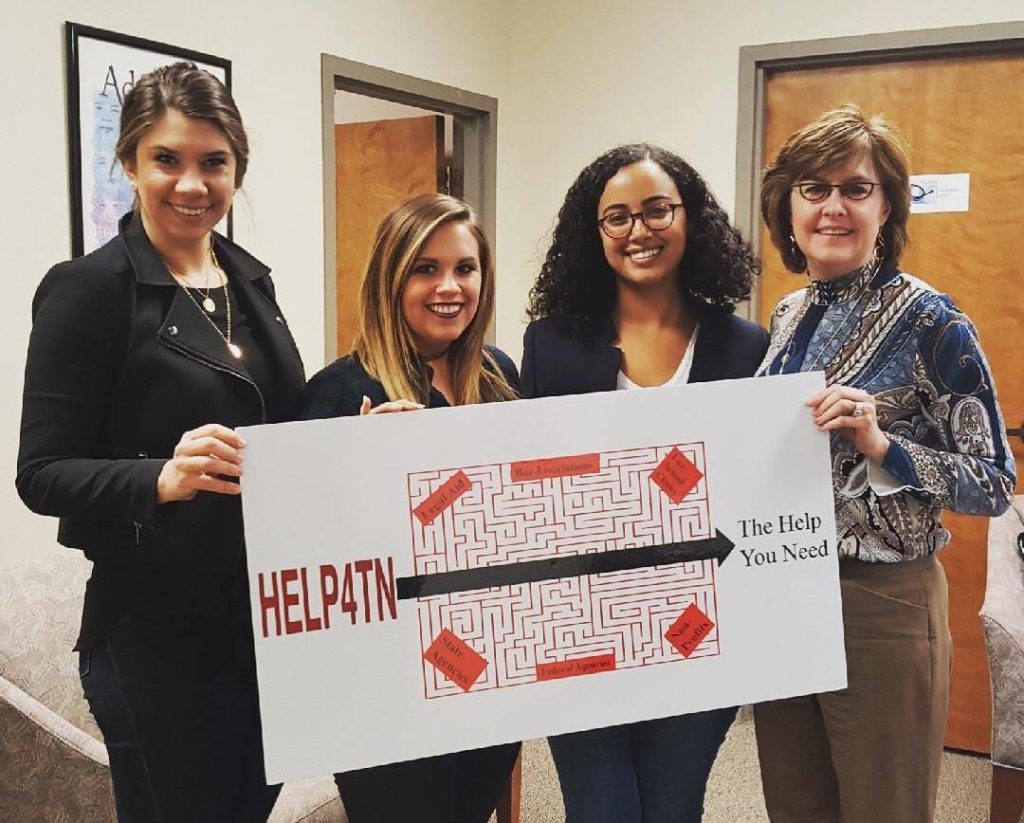Thirty-two University of Tennessee College of Law students spent their spring break week logging more than 600 hours of pro bono service throughout six locations stretching from Louisiana to North Carolina.
The students worked with licensed attorneys in learning environments specific to the students’ interests to assist clients with immigration matters, criminal justice, family law, contract compliance, nonprofit formation, and legal aid.
The pro bono work completed by the students pushed the soon-to-be graduating class’s total to 11,715 hours during their three years at UT. That’s a number Access to Justice Coordinator Jason Collver said far surpasses recent years’ totals.
“We are so proud of the great work our students are engaging in, and the commitment to service that this inspires in them,” Collver said. “Pro bono service is an important pillar of the legal profession.
“The students’ commitment to pro bono at this stage of their legal careers shows great hope for continued service and fits very well with the Tennessee Supreme Court’s Access to Justice initiative.”
Those who traveled the greatest distance during alternative spring break week visited a detention center in Jena, La. that houses immigrants taken into custody by Immigration and Customs Enforcement. The students partnered with the Southeast Immigrant Freedom Initiative to screen cases of detainees who could potentially be released on bond. Students drafted pleadings and other documents aimed at winning detainees’ release.
In Fort Campbell, Ky., students assisted in the Office of the Staff Judge Advocate by helping service men facing deployment prepare wills and next-of-kin notifications. Second-year law student Campbell Cox said the experience helped him better understand the work of a military lawyer.
“We unexpectedly ran into a one-star general who took time to greet all of the students and talk a little bit about his experiences with JAG officers who worked under him,” Campbell said. It was “an extremely unique opportunity for the students.
In Cherokee, North Carolina, students visited the tribal offices of the Eastern Band of Cherokee Indians where they worked to educate tribal members. The students clarified guidelines for child custody cases and helped clarify jurisdiction to terminate parental rights for non-tribal members under the Indian Civil Rights Act.
In three Tennessee locations, students assisted Knoxville- and Nashville-based legal aid organizations with research and client in-take. While in Gray, students helped Appalachian Community Federal Credit Union through the initial steps of forming a non-profit organization to better serve its clients and communities.
College of Law Professor Eric Amarante, who provided oversight for the students working in Gray, said he believes finding ways to engage students by working with clients on-site is invaluable preparation for their careers.
“Not that long ago, there wasn’t a lot of practical hands-on learning in law school,” Amarante said. “What I like about the Alternative Spring Break is that they get to work on complex legal matters with a safety net.”
What students have been able to take away from their work with the credit union and the other sites they visited throughout the week is difficult to replicate in the classroom, Amarante said.
“This just mimics what happens out there working with the law,” he said. “If they can wrap their heads around these concepts in two days, they can handle what will be thrown at them in practice.
“This is providing them with a foundation they need,” he said.
